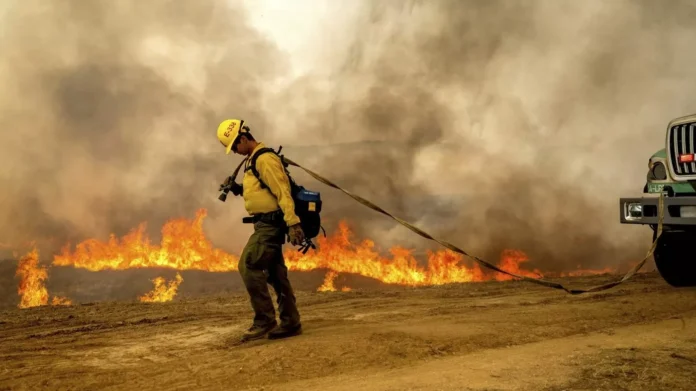Wildfires have long been a threat to our environment, destroying homes, habitats, and livelihoods. But a recent study has revealed an even more alarming consequence of these devastating blazes – a significant increase in local deaths.
According to the study, conducted by a team of scientists, wildfires may be responsible for raising local deaths by about 67 percent in a given month. The researchers linked 82 “excess deaths” to the wildfires that struck Maui, Hawaii, in August 2023. This is a staggering two-thirds more fatalities than what would have been expected for that month.
The study, published in the Journal of Environmental Health Perspectives, sheds light on the deadly impact of wildfires on human health. While the immediate dangers of these blazes are well-known, the long-term effects on local communities have often been overlooked.
The researchers analyzed data from the Maui County Department of Health, looking at deaths that occurred during the month of August in the years 2018 to 2024. They found that in August 2023, when the wildfires struck, there was a significant increase in deaths compared to the previous years. This increase was not seen in any other month or year, highlighting the direct correlation between the wildfires and the rise in deaths.
The study also found that the majority of the excess deaths were among older adults, particularly those over the age of 65. This is concerning as older adults are more vulnerable to the effects of air pollution and respiratory illnesses, which are known to be exacerbated by wildfires.
The researchers believe that the increase in deaths can be attributed to the poor air quality caused by the wildfires. The smoke and ash from the blazes can have a severe impact on respiratory health, leading to respiratory distress and even death. In addition, the stress and anxiety caused by the wildfires can also contribute to a decline in overall health, particularly for those with pre-existing conditions.
The devastating wildfires that struck Maui in August 2023 not only destroyed homes and landscapes, but they also claimed the lives of many members of the local community. This is a wake-up call for us to take action and address the root causes of these wildfires.
Climate change is a major contributor to the increase in wildfires, and it is our responsibility to take steps to mitigate its effects. This includes reducing our carbon footprint, promoting sustainable practices, and supporting policies that prioritize the protection of our environment.
In addition, we must also be prepared to respond to these disasters and protect our communities. This includes investing in early warning systems, creating evacuation plans, and providing resources for those affected by the wildfires.
The findings of this study serve as a reminder that the consequences of wildfires go beyond the destruction of property and natural resources. They can also have a devastating impact on human health, particularly for vulnerable populations. It is crucial that we take immediate action to prevent and mitigate the effects of these blazes.
As we continue to face the challenges of climate change, it is essential that we work together to protect our planet and the people who call it home. Let us use this study as a call to action and make a positive impact on our environment and our communities. Together, we can create a safer and healthier world for ourselves and future generations.

